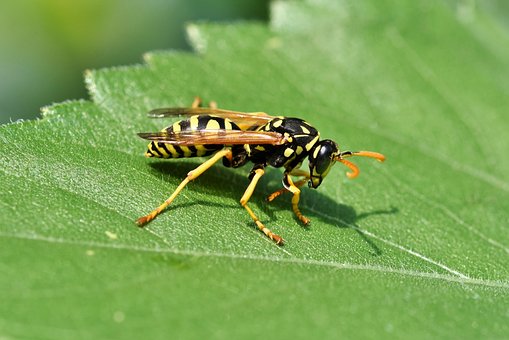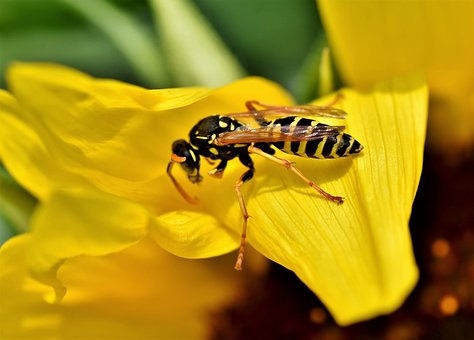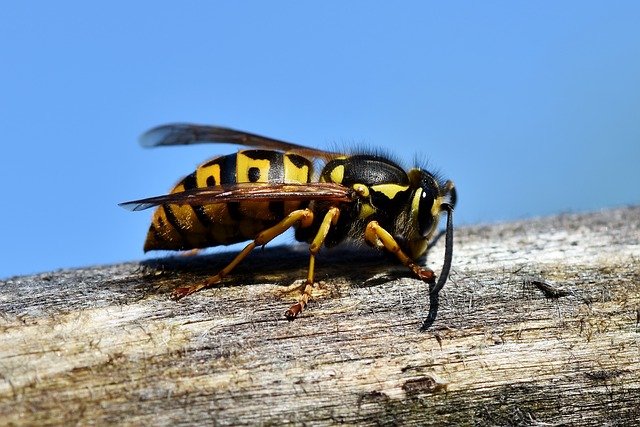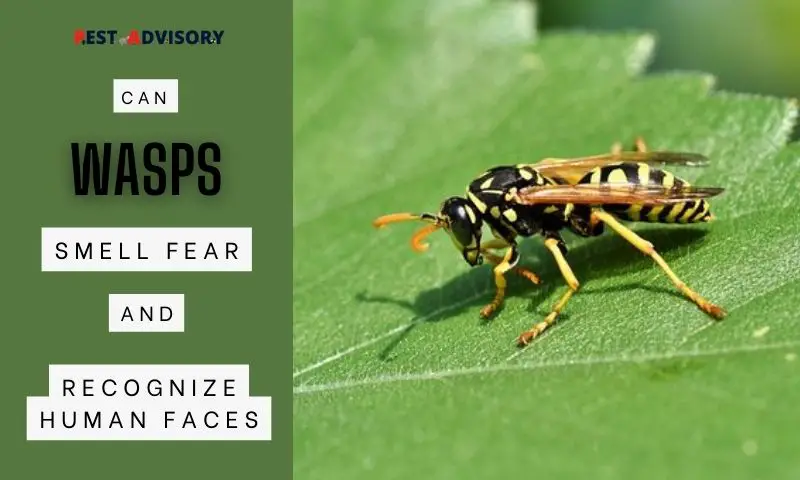When it comes to insects, wasps are often viewed as aggressive and unpredictable creatures that can leave us running for cover.
But have you ever wondered if they’re capable of more than just stinging and buzzing around us? Can wasps smell fear and recognize human faces?
While understanding wasp behavior is fascinating, it’s essential to prioritize safety when dealing with these stinging insects.
Important Note: If you're tired of pests and want a reliable solution, then you should definitely consider seeking help from a professional pest control company. DIY solutions can be effective, but if you're dealing with a significant pest infestation, you don't want to rely solely on DIY methods. Pest control companies typically don't charge huge fees. You can fill out this form to receive free quotes from the top local pest control companies, and compare the quotes and see for yourself. Then, finally, your pest problems will be eliminated for good.
Fill out our form for expert pest control services tailored to your specific needs. Don’t let fear of wasps hold you back – trust our professionals to provide effective solutions for a worry-free environment.
These questions have fascinated scientists and the public alike, sparking a flurry of research and speculation.
In this article, we’ll delve into the fascinating world of wasp behavior and explore the latest findings on their ability to detect human emotions and fears.
Can Wasps Sense Fear?
Scientific research suggests that wasps cannot sense or smell fear directly, despite their sharp senses. However, their sensitive olfactory system allows them to detect pheromones released by humans and animals when they are afraid.

Senses of a Wasp
Wasps have extraordinary senses of smell, taste, and sight.
They use their acute senses to locate prey, avoid danger, and find their way back to their nests.
Smell
Wasps have an extremely sensitive sense of smell, which allows them to detect food from a distance.
They can also pick up on pheromones released by other wasps or animals, which helps them locate potential mates and communicate with other members of their colony.
Taste
Wasps have taste receptors located on their mouthparts, which they use to detect and identify different types of food.
They can also taste chemicals in the air, which helps them locate food sources.
Sight
Wasps have compound eyes, which allow them to see movement and sense changes in light.
They can also see ultraviolet light, which humans cannot see, and use this to navigate and find flowers with nectar.
Touch
Wasps have sensory hairs on their body that help them detect vibrations and movement in their environment.
This sense is particularly important for solitary wasps, which use vibrations to locate and catch prey.

What are Wasps Afraid of?
Wasps are generally not scared, but they can be intimidated or threatened if they feel that their territory or nest is being threatened.
The following are some things that can intimidate or provoke wasps:
Loud Noises
Wasps may perceive loud and sudden noises as a threat, which can cause them to become agitated or aggressive.
Quick Movements
Sudden and rapid movements around a wasp can also trigger their aggression, as they perceive it as a threat.
Bright Colors
Wasps often sense bright colors such as yellow, orange, and red more, so wearing these colors can attract them and make them more likely to sting.
Nest Disturbance
If a wasp nest is disturbed, either intentionally or unintentionally, the wasps will become highly agitated and defensive and may attack in large numbers and can sting you.

Specific Phobia Name for Fear of Wasps
The specific phobia name for fear of wasps is spheksophobia. Individuals with spheksophobia may experience intense anxiety or panic when faced with wasps or situations where they might encounter them.
What are Some Strategies for Overcoming Spheksophobia?
Strategies for overcoming spheksophobia may include gradual exposure therapy, cognitive-behavioral techniques to challenge irrational thoughts about wasps, relaxation exercises to manage anxiety, and seeking support from a therapist or support group specializing in phobias.
Frequently Asked Questions
Do Wasps have Feelings?
It is not fully understood if wasps experience emotions or have the ability to feel in the same way humans do.
Some scientists suggest that they may have basic emotional responses, but more research is needed to confirm this.
Are Wasps Scared of Humans?
Wasps are not necessarily scared of humans, but they can perceive humans as a threat if they feel that their territory or nest is being threatened. Thus wasps are not necessarily friendly to humans.
Wasps are instinctively territorial and will defend their nests aggressively if they perceive a threat to their colony or offspring.
Can Wasps See at Night?
Wasps have limited vision in low light conditions, and they rely on other senses, such as their sense of smell, to navigate at night.
However, some species of wasps have eyes that are adapted to low light environments, allowing them to see better in the dark than other wasp species.
Final Words
While wasps may not be the cuddliest of creatures, their ability to detect human emotions and recognize faces is truly remarkable.
From their sharp sense of smell to their acute visual perception, these insects have developed unique adaptations that allow them to navigate and interact with the world around them.
So the next time you encounter a wasp, remember that there’s more to these buzzing insects than meets the eye.

